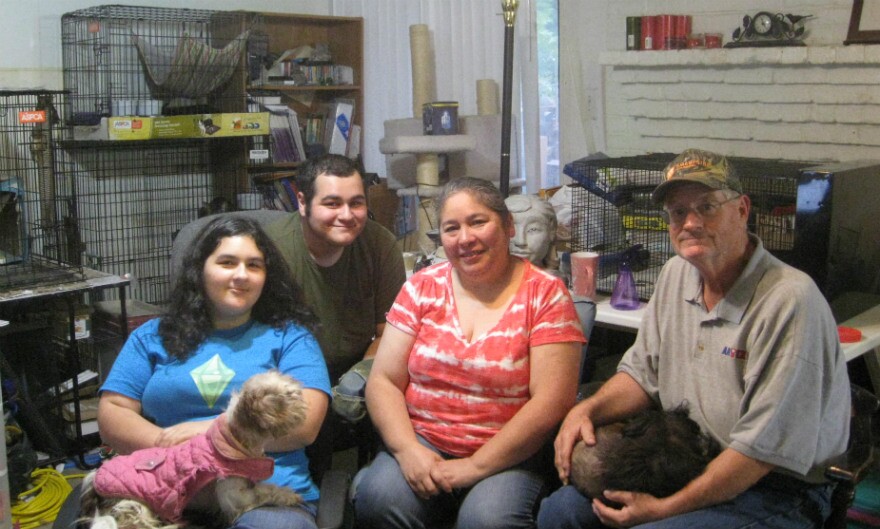A brother and sister in their 20s finished high school last month in Richardson even though learning disabilities slowed them down. They got high school degrees by taking online classes at home.
School was never easy for Melissa Richardson, who’s 20. Her mother noticed unusual behavior by age 2. And that was just the start.
“She was one of these kids that didn’t talk until age 4 or 5,” says her mom Melissa Richardson, who has the same name as her daughter. “She wasn’t interacting with anyone. She was getting into a lot of trouble. Melissa was being verbally abused by her teacher, who was in her face, telling her ‘Can’t you count? One at a time?’”

Melissa was eventually diagnosed with autism and something called auditory processing disorder.
“The brain doesn’t process sound the way most people do,” explains her mother. “Her audiologist described it as 'take your hand, cover your mouth, and talk to someone.' And that’s how she hears.”
Then there’s Melissa’s brother, William, who's 22, diagnosed as a youngster with dyslexia and dysgraphia. Those disabilities impair reading and writing, even though he tested in the genius range, according to his mother.
William recalls frustration with a disbelieving teacher.
“When I did a good job,” William says, “it was because I cheated. That’s the only reason I was doing well that time. Some of the work would be torn up and thrown away.”

Both kids wanted to do well, and worked hard in a household where education is paramount. By the time Melissa was in third grade, a fed-up mom pulled her out of school and Melissa startedonline coursesat home. This high-functioning autistic girl started improving.
“This is a platform and technology that makes sense to them,” explains autism expert Tandra Allen with the University of Texas at Dallas. “Their brains are able to figure out the problem-solving that’s involved with it.”
Allen heads up Virtual Training research at the UT-DallasCenter for Brain Health.
“Being able to log online and safely learn in an environment that’s free from distraction, free from bullies, free from social confusion -- it makes sense they would be able to learn better,” Allen says.
Meanwhile, Melissa’s mom wanted William to try online learning too, especially after a rare cancer in 2011. William’s right pinky finger was amputated. He received chemotherapy, and suffered a side effect called chemo-brain.

“That is brain damage,” William says. “Just all across your brain it’s been battered, bruised, and beaten. Figuratively. And I lost 60 points of my IQ.”
Learning in regular school got even tougher, so William tried online school like his sister.
“I was able to pay attention, and didn’t have to deal with people yelling, screaming, using bad grammar," William said. "Most of the time I was in the living room with my headphones on listening to music.”
And not just any music, but electronica. Susie Evans, an educational diagnostician for Carrollton-Farmers Branch schools, is also one of the parents in KERA’s ongoing Class of '17 education project. She says for students like William, music isn't a distraction, it’s an aid.
“There are some kids who need that stimulation and that extra ‘going into their own world,’" she said. "So it can tune out some of the outside world. So he is in his own world doing his own work.”
And it worked. After missing school for cancer treatment, William finished high school online. He and Melissa both graduated at a June ceremony for online students, some of whom they had met on educational field trips or art classes for home-school kids. William is bothered he didn’t graduate with his own age group, but Melissa isn’t.

"I’m not ashamed of graduating late,” Melissa says. “It’s nothing to be ashamed of. It feels good that I’ve overcome a lot of challenges, emotionally, physically, other ‘allys’.”
The next step for these freshly minted graduates? Both are considering community college.





